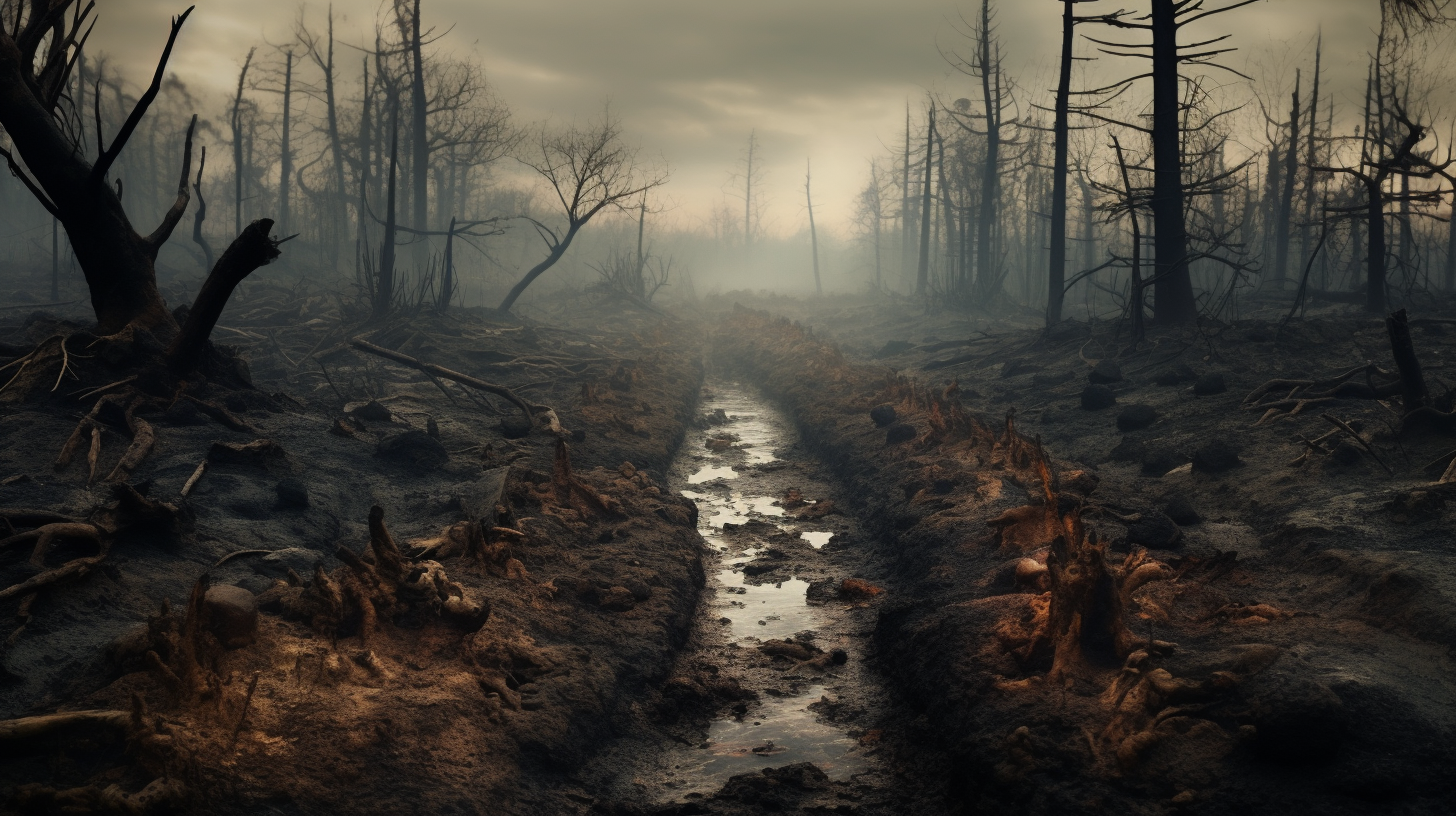The once-verdant bastions of green, now reduced to catacombs of ash, stand as melancholic monuments to what we have lost. What were these ‘trees’ that our ancestors used to speak of? Living, breathing pillars of life that once covered the globe in a cloak of hope? Alas, in the year 2023, we find ourselves sifting through the Legacy of Ashes: A Testament to the Trees, narrating the unraveling of our natural world, thread by thread, leaf by leaf.
The irreplaceable majesty of trees – once the very lungs of our planet – succumbed to the insatiable hunger of modernity’s maw, the voracious appetite of progress that saw timber as trinkets rather than the towering guardians of our ecosystem. ‘Forests to Ashes, Cities Keep Burning’ etched in our collective memory the dire consequences of destroying these natural firebreaks, yet we acted as callous spectators to their demise.
Let us traverse the journey through the eyes of those who have witnessed the transition. An elder speaks of a time when the rustle of leaves was the symphony of life, not the eerie whistle through barren branches that now haunts the quiet air. An ecologist mourns the shadow cast by the disappearance of the Amazon and the Congo, ecosystems that thrived with biodiversity humbled into somber silence, a landscape reminiscent of a ‘crime scene’ as described in ‘Shadows Where Forests Stood’.
We are inhabitants of a desolate panorama, where the air hangs heavy, not with humidity, but with the bitter tinge of remorse. The specter of forests past whispers in every gust of wind, a stinging reminder of what our apathy has wrought. Have we become the architects of our own demise, crafting a world where the idea of a forest becomes a foreign concept?
Our atmospheric sarcophagus, thick with the ash of incinerated dreams, suffocates what remains of the natural world. Animals, now refugees, scavenge through the wreckage seeking sustenance on a planet that once overflowed with plenty. Insects, the unsung heroes of pollination and waste decomposition, exist only in the annals of history, their duties unfulfilled, with catastrophic consequence. We taste the grit of our mistakes with each inhale, the air a tangible testament to the trees that are no more.
Vivid imagery depict the stark contrast of a world that knew the gentle caress of leaves to one that recoils under the harsh kiss of the sun, unshaded and unsheltered. Our climate, now a tempest of extremes, oscillates between the inferno of wildfires and the icy grip of unnatural winters. Humanity desperately clings to the vestiges of normalcy, but finds the world unrecognizable. Every barren field, once ripe with crops nurtured by the trees’ tender hands, reiterates the severity of our plight.
As we reflect upon the legacy we are now destined to leave behind – a legacy of ashes – one cannot help but wonder, have we passed the point of no return? Is this melancholic landscape the inevitable conclusion of our narrative, the final page upon which our story will end? This planet, grappling for a fragment of the resplendence it once boasted, holds up a mirror to the error of our ways.
Yet, in the ashes, there exists the silent, unspoken hope that someday, this charred ground might give rise to saplings that will never know the warmth of human touch; they will rise solely for the sake of life itself. Until such time, we navigate this Legacy of Ashes, a memento of lost life and a foreboding omen to a humanity that must find a new path, lest we succumb to the legacy we’ve authored.
